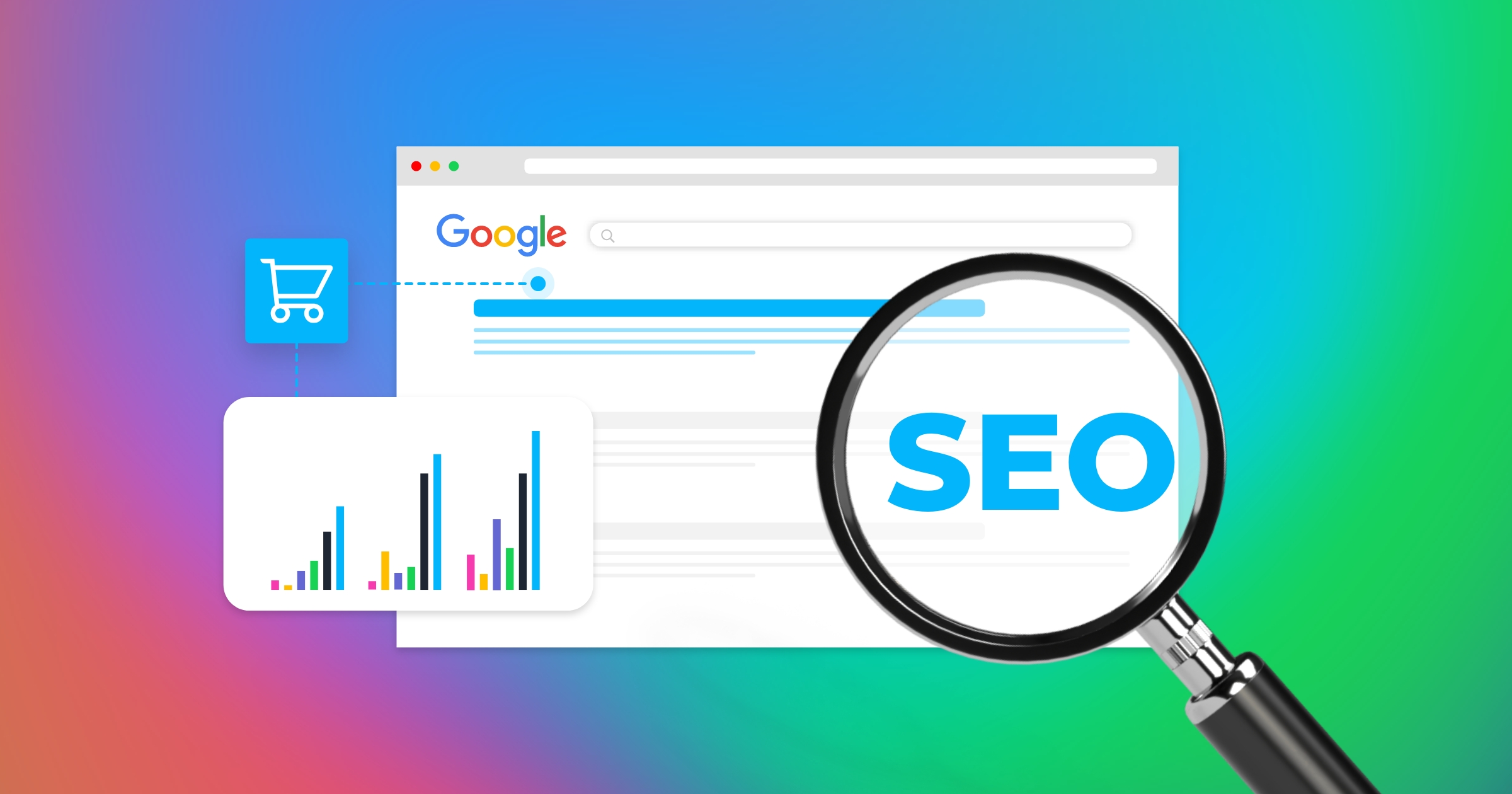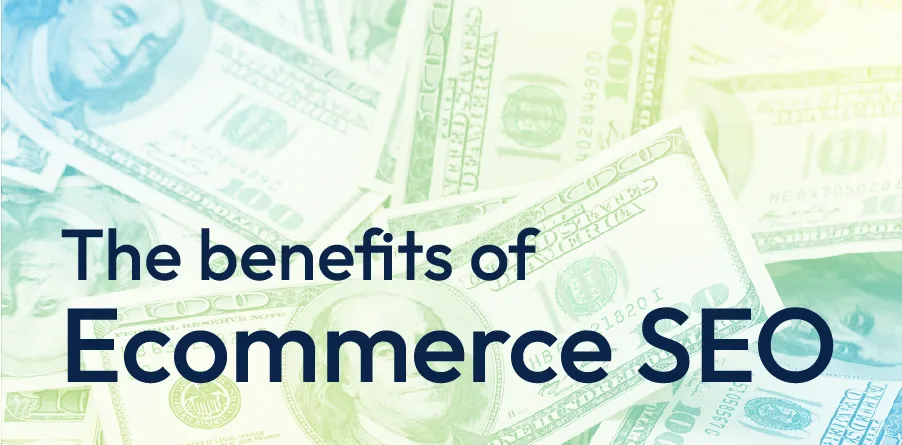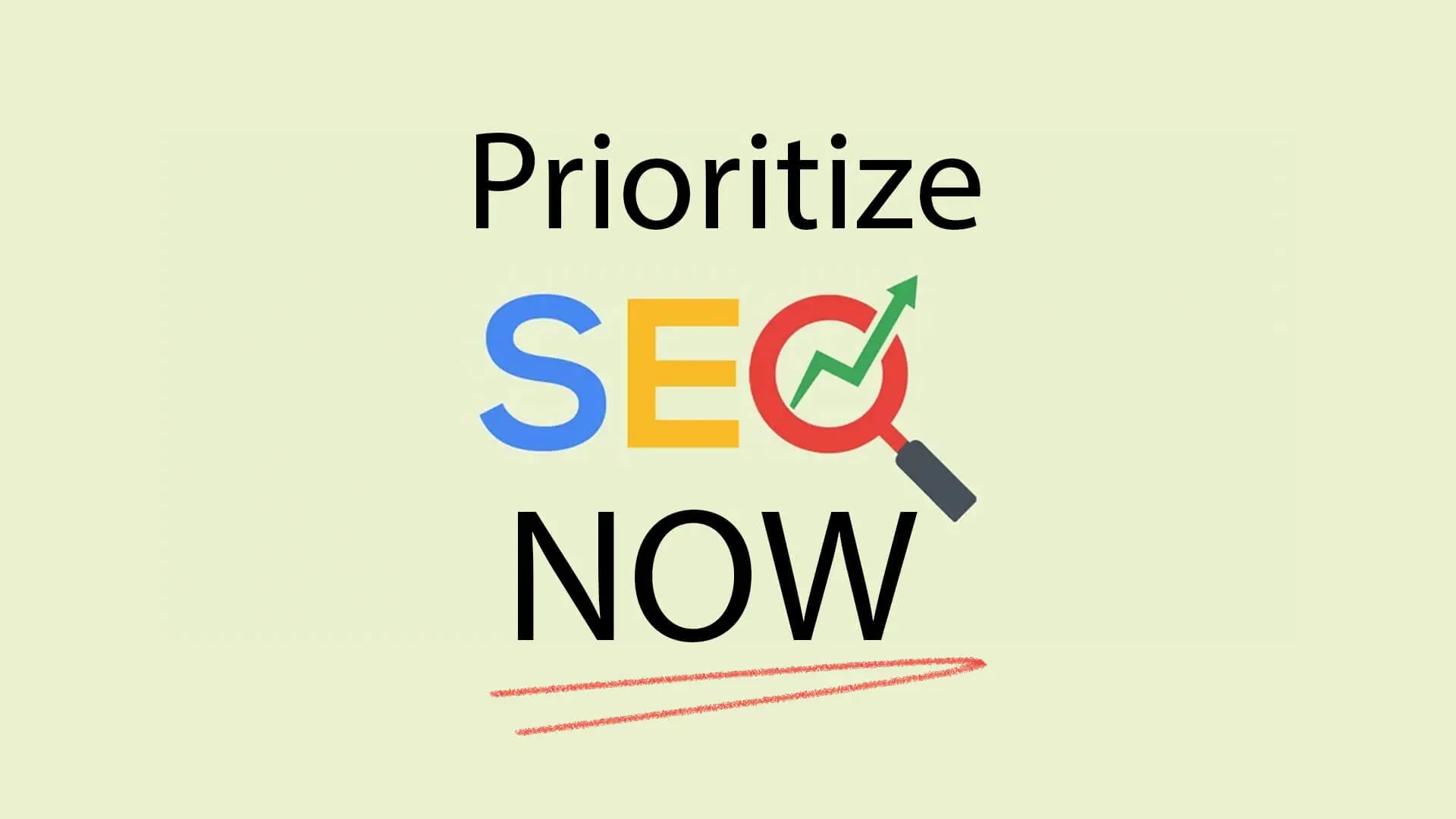
Ever wonder why even established brands often sidestep ecommerce SEO? It’s a common issue, but one that can seriously impact online success. SEO for ecommerce isn’t just a buzzword; it’s a critical strategy to drive organic traffic and increase sales. Yet, too many brands neglect it, focusing instead on flashy ads and social media campaigns.
This post will highlight why skipping ecommerce SEO is a huge miss and what you can gain by giving it the attention it deserves. Stick around to learn why optimizing your online store for search engines is not just important, it’s essential.
The Importance of Ecommerce SEO

Ecommerce SEO is a big deal for online stores. It’s not just about showing up on search engines; it’s about doing better in almost every aspect of your online presence. Let’s dive into why Ecommerce SEO is so crucial.
Driving Organic Traffic
Organic traffic is gold. Unlike paid ads, you don’t have to shell out money every time someone clicks. By optimizing your online store for search engines, you can attract people who are already looking for what you offer. It’s like having a 24/7 sales team that never sleeps.
SEO helps you rank higher on search result pages, making it easier for potential customers to find you. Imagine being on the first page of Google for a popular keyword—it’s like putting your store in the busiest part of town.
Here are some ways SEO drives organic traffic:
- Keyword Optimization: Using the right keywords helps search engines understand what your site is about.
- Quality Content: Informative and engaging content keeps visitors on your site longer, which can improve your rankings.
- Backlinks: Getting links from other reputable sites boosts your credibility and can improve your search engine position.
Enhancing User Experience
Good SEO isn’t just for search engines. It’s also great for your visitors. When your site is easy to use and quick to load, people have a better experience. And happy visitors are more likely to become customers.
Key elements that improve user experience include:
- Quick Load Times: Nobody likes a slow website. Fast load times keep visitors from bouncing off your site.
- Mobile Friendliness: More people shop on their phones, so a mobile-friendly site is a must.
- Simple Navigation: A well-organized site helps users find what they need without hassle.
Think of it like tidying up a store. If everything is organized and easy to find, customers are more likely to stay and shop. The same goes for your online store.
Building Brand Credibility
Appearing at the top of search results does wonders for your brand’s credibility. People trust Google, so if Google trusts your site enough to rank it highly, visitors are more likely to trust you too.
Here’s how top search rankings build trust:
- Authority: High rankings make you look like an industry leader.
- Quality Signals: People associate higher rankings with higher quality.
- Increased Visibility: Being easily found makes your brand more recognizable.
In a way, SEO acts as a badge of honor. If your store ranks well, it signals to visitors that you are trustworthy and reliable. And trust is key to turning visitors into loyal customers.
By focusing on Ecommerce SEO, you’re not just improving your search engine rankings. You’re enhancing your overall customer experience and building a brand that people trust. The benefits are clear, and the effort is worth it.
Common Reasons Brands Neglect Ecommerce SEO

Neglecting ecommerce SEO is more common than you might think, and it stems from several underlying reasons. Let’s break down some of the main factors why brands often overlook this critical aspect of their online strategy.
Lack of Understanding
One of the biggest reasons brands neglect ecommerce SEO is simply because they don’t understand it. SEO can seem complex and overwhelming, especially for those who aren’t familiar with digital marketing. Many business owners don’t realize how much SEO can help them:
- Underestimation of Importance: Some think that if their site looks great, that’s enough. They don’t understand how SEO can drive traffic and sales.
- Confusion about Techniques: Terms like “keyword optimization,” “backlinks,” and “meta tags” can sound like jargon. Without clear knowledge, taking action becomes tough.
- Misplaced Priorities: Businesses might focus more on social media or other channels, thinking those efforts alone will bring results.
Resource Constraints
Another major factor is the limitation of resources. Smaller businesses, in particular, often face challenges in allocating budget and manpower to SEO efforts. Here’s why:
- Budget Issues: SEO often requires upfront investment in tools, content creation, and possibly hiring experts.
- Manpower Shortage: Companies may not have enough staff to handle SEO tasks, especially if they’re already stretched thin with other responsibilities.
- Time Constraints: SEO is a long-term strategy that requires time and patience. Brands looking for quick fixes might skip SEO entirely.
Immediate Focus on Paid Advertising
Paid advertising can give quick results, making it an attractive option for many brands. However, this can lead to neglecting the long-term benefits of ecommerce SEO. Let’s look at why:
- Quick Returns: Paid ads can bring immediate traffic and sales, which is tempting for brands looking for fast results.
- Prioritization of Short-Term Goals: When brands aim for quick wins, they often focus on paid ads and ignore SEO, which takes time to show results.
- Budget Allocation: The budget that could have been used for SEO might get entirely spent on paid advertising campaigns.
Misconceptions About ROI
Many brands have misconceptions about the return on investment (ROI) from ecommerce SEO. These misunderstandings can lead them to ignore SEO altogether. Common misconceptions include:
- Slow Results Lead to Doubt: SEO doesn’t provide instant gratification. Brands might think it’s not working if they don’t see quick results.
- Misjudging Value: Some companies see SEO as an extra cost rather than a valuable investment in their future.
- Lack of Clear Metrics: Unlike paid ads where results are immediate and measurable, SEO success metrics can seem vague or indirect, making them harder to grasp.
Skipping ecommerce SEO might seem like a minor slip, but it can have significant consequences. Understanding these common reasons can help brands realize the importance of SEO and consider it a valuable, long-term strategy.
The Long-Term Benefits of Ecommerce SEO

Optimizing your ecommerce site for search engines isn’t just a one-time task. It’s a long-term strategy that offers a wealth of benefits over time. From generating consistent traffic to saving money and beating the competition, ecommerce SEO is a must-have for online stores.
Sustainable Traffic Growth
Ecommerce SEO is like planting a tree. It takes time to grow, but once it starts, it keeps giving. Unlike paid ads, which stop as soon as you cut the budget, SEO keeps bringing in organic traffic long after the initial effort.
Think of organic traffic as the gift that keeps on giving. Once you rank well for key search terms, people naturally find your website. This isn’t just a short-term spike; it’s a consistent flow of visitors who are already interested in what you offer.
Here’s why organic traffic through SEO is sustainable:
- Dependable: Unlike ads that can be turned off, good SEO efforts keep working in the background, attracting visitors 24/7.
- Ever-Green: Quality content optimized for search engines remains relevant. It keeps driving traffic without constant updates.
- User Intent: People searching for specific keywords are already interested in your products, making them more likely to convert.
Cost-Effectiveness
While SEO may need an initial investment, it’s far more cost-effective in the long run compared to paid advertising. Picture it this way: every click from a paid ad costs money, while clicks from organic search are free once you’re ranked.
Here’s why SEO is a smart financial move:
- Lower Cost per Acquisition: Over time, the cost of acquiring a customer through SEO is much lower than through paid ads.
- Long-Term ROI: Initial SEO efforts can keep paying off for months or even years, providing a higher return on investment over time.
- Budget Efficiency: You can allocate budget to continually improve SEO without the ongoing cost of running ads.
Are you tired of pouring money into ads with no end in sight? Investing in SEO offers a more sustainable path to growing your business.
Competitive Advantage
In the crowded world of ecommerce, standing out is crucial. Good SEO practices can give you that edge. Think of it as setting up a shop on the busiest street in town, compared to a hidden side alley.
Here’s how SEO gives you a leg up on the competition:
- Higher Visibility: When potential customers search for products you offer, showing up at the top means more clicks and more sales.
- Brand Trust: High search rankings build credibility. Customers trust Google, so when your site appears at the top, they’re more likely to trust you.
- Staying Ahead: By regularly updating your SEO strategies, you can keep up with or surpass competitors who neglect SEO.
Imagine two stores selling the same products. One is well-optimized for search engines and the other isn’t. Which one do you think customers will find and choose? That’s the power of strong ecommerce SEO.
Maximizing the long-term benefits of ecommerce SEO means not just keeping up but leading in your industry. Sustainable traffic, cost savings, and a competitive edge are just the beginning of what you can achieve with effective SEO strategies.
Strategies for Effective Ecommerce SEO

When it comes to making your online store visible on search engines, having a robust ecommerce SEO strategy is crucial. Here are some key strategies that can significantly improve your ecommerce site’s search engine rankings.
Keyword Research
Finding the right keywords is the foundation of a successful SEO campaign. Keywords are the terms that people type into search engines when looking for products. Identifying and targeting the right keywords can make or break your ecommerce SEO efforts.
- Understand Your Audience: Know what your potential customers are searching for. Use tools like Google Keyword Planner or SEMrush to find keywords with high search volume and low competition.
- Focus on Long-Tail Keywords: These are phrases that are longer and more specific. They’re less competitive and often lead to higher conversion rates. For example, instead of just “shoes,” go for “women’s running shoes.”
- Analyze Competitors: Look at what keywords your competitors are ranking for. This can give you insight into what works in your industry.
Effective keyword research ensures that your ecommerce site is visible to the right people at the right time.
On-Page SEO Optimization
On-page SEO involves tweaking the content and HTML source code of your webpages to improve their search engine rankings. Here are some key techniques:
- Meta Tags: Include primary keywords in your title tags and meta descriptions. This helps search engines understand what your page is about.
- Headers: Use H1, H2, and H3 tags to structure your content. This not only makes it easier for search engines to read but also improves user experience.
- Product Descriptions: Make sure your product descriptions are unique and include relevant keywords. Avoid duplicate content, which can hurt your SEO.
Optimized on-page elements can dramatically improve your search engine visibility and user experience.
Technical SEO
Technical SEO refers to improving the technical aspects of your website to make it easier for search engines to crawl and index your pages. Here are some important factors to consider:
- Site Speed: A fast-loading site improves user experience and gets a ranking boost from search engines. Use tools like Google PageSpeed Insights to check your site speed and make necessary improvements.
- Mobile-Friendliness: More people shop on mobile devices. Ensure that your site is mobile-friendly by using a responsive design.
- Structured Data: Implement structured data (schema markup) to help search engines understand your content better. This can improve your chances of appearing in rich snippets.
Addressing these technical aspects ensures that your site is not only user-friendly but also search-engine friendly.
Content Marketing
Creating valuable content is a powerful way to attract and retain customers. Good content can improve your search engine rankings and build customer loyalty. Here’s how:
- Blog Posts: Write blog posts related to your products. This can help you rank for more keywords and provide value to your customers.
- Video Content: Product demos, how-to videos, and customer testimonials can engage users and improve your search rankings.
- Guides and Tutorials: Comprehensive guides and tutorials can attract visitors looking for detailed information.
Great content can set you apart from the competition and make your site a go-to resource in your industry.
Link Building
Link building involves acquiring high-quality backlinks to your website from other reputable sites. Backlinks act as votes of confidence and can significantly boost your SEO.
- Guest Posting: Write guest posts for reputable blogs in your industry. Include a link back to your site in the bio.
- Outreach: Reach out to influencers and bloggers to review your products. This can generate valuable backlinks.
- Social Sharing: Encourage users to share your content on social media. While social signals don’t directly impact SEO, they can lead to more backlinks.
High-quality backlinks improve your site’s authority and search engine rankings.
By focusing on these strategies, you can create a strong foundation for ecommerce SEO that drives organic traffic, improves user experience, and boosts sales.
Challenges in Implementing Ecommerce SEO

Implementing ecommerce SEO can be a tough nut to crack. From keeping up with ever-changing algorithms to measuring SEO performance accurately, brands face several challenges. Let’s break down some of these hurdles and how they impact the effectiveness of ecommerce SEO.
Keeping Up with Algorithm Changes
Search engines like Google constantly update their algorithms. These updates are designed to improve user experience but can make it difficult for ecommerce sites to maintain their rankings. It feels like trying to hit a moving target. One day you’re on top of the search results, and the next, you’re buried under competitors.
Why is this such a big deal? Here are some reasons:
- Constant Updates: Google makes hundreds of small changes every year, plus major updates that can drastically affect rankings.
- Lack of Transparency: Search engines rarely disclose the specifics of what will change. You’re left guessing what the latest update means for your site.
- Resource Intensive: Keeping up requires time and expertise. You need to stay informed about the latest SEO trends and adapt your strategy accordingly.
To stay ahead, ecommerce sites must be agile, constantly reviewing their SEO performance and making necessary tweaks.
Measuring SEO Performance
Measuring SEO performance isn’t always straightforward. Unlike paid ads, where you can see immediate clicks and conversions, SEO takes time to show results. This delayed feedback loop can make it hard to gauge whether your efforts are paying off.
Key challenges include:
- Lag Time: SEO improvements often take months to show up in search rankings and traffic.
- Multi-Faceted Metrics: Success isn’t just about traffic. It’s also about conversion rates, bounce rates, and other metrics that require tracking.
- Attribution Confusion: Understanding where your traffic is coming from can be tricky. Was it because of your blog post, social media, or organic search?
To effectively measure your SEO performance, you need analytics tools, a clear strategy, and patience.
Balancing SEO with User Experience
While it’s crucial to optimize for search engines, you can’t forget about the people actually visiting your site. Balancing SEO requirements with a good user experience is often a tightrope walk. Too much focus on SEO can result in a keyword-stuffed, hard-to-navigate site, driving away potential customers.
Here are some key points:
- Loading Speed: SEO favors fast sites, and so do users. Slow load times can hurt both rankings and user satisfaction.
- Mobile Optimization: More people are shopping on mobile devices, so your site needs to be mobile-friendly. This is a key factor for both SEO and user experience.
- Readable Content: Your content should be useful and easy to read. Overloading it with keywords for SEO can make it awkward and hard to understand.
Think of it like a well-designed store layout. You want to attract visitors with a great storefront (SEO) but also keep them inside with a pleasant shopping experience (user experience).
By understanding these challenges, you can better prepare to tackle them head-on, ensuring your ecommerce site not only ranks well but also converts visitors into customers.
Steps to Start Prioritizing Ecommerce SEO

To make the most out of Ecommerce SEO, it’s crucial to follow a structured approach. These steps will help you get started and ensure that your online store is optimized for search engines.
Conduct an SEO Audit
An SEO audit is your starting point. It helps you understand where your site stands in terms of search engine optimization. Think of it as a health check-up for your website.
How to Perform an SEO Audit:
- Analyze Site Health: Use tools like Google Search Console and Screaming Frog to find any technical issues, broken links, or error pages.
- Review Keywords: Check if your site is targeting the right keywords. Are you ranking for the terms your potential customers are searching for?
- Examine Content: Look for duplicate content, meta tags, and poor-quality content that might be hurting your rankings.
- Assess Backlinks: Review the quality and quantity of backlinks pointing to your site.
Why It’s Important:
- Identify Weaknesses: Pinpoint areas that need improvement.
- Benchmarking: Establish a baseline to measure progress.
- Action Plan: Develop a targeted strategy to address identified issues.
Regular SEO audits keep your site in top shape and help you stay ahead of competitors.
Develop a Strategy
Once you’ve completed your audit, the next step is developing a comprehensive Ecommerce SEO strategy. This is your roadmap to success.
Steps to Develop an SEO Strategy:
- Set Clear Goals: Define what you want to achieve. Examples include increasing organic traffic, boosting sales, or improving search rankings.
- Keyword Research: Identify keywords relevant to your products. Use tools like SEMrush or Ahrefs to find high-value, low-competition keywords.
- Content Plan: Develop a content calendar. Plan for blog posts, product descriptions, and other content types that can improve SEO.
- Technical SEO: Ensure your site is technically sound. Focus on speed optimization, mobile-friendliness, and secure connections (HTTPS).
- Link Building: Plan how to acquire high-quality backlinks.
Benefits of a Well-Defined Strategy:
- Direction and Focus: Stay on track with specific goals and action plans.
- Resource Allocation: Efficiently use your time, budget, and manpower.
- Measurable Results: Clearly track your progress over time.
A clear, focused strategy provides a path to follow, ensuring all efforts are aligned towards achieving your SEO goals.
Allocate Resources
SEO is not a one-person job nor a one-time effort. It needs a dedicated team and ongoing investments.
What to Allocate:
- Time: Regularly update content, check rankings, and make necessary adjustments.
- Budget: Invest in SEO tools, content creation, and possibly third-party services like link building.
- Personnel: Assign skilled team members or hire experts. You might need content creators, technical SEO specialists, and digital marketers.
Why Resource Allocation Matters:
- Continuous Improvement: SEO is an ongoing process. Regular updates and adjustments are necessary to keep your site optimized.
- Competency: Skilled professionals can make critical decisions and act swiftly on new SEO trends and algorithm changes.
- Return on Investment: Proper allocation ensures that your SEO efforts yield high returns, contributing to long-term success.
Just like you wouldn’t run a store with insufficient staff or supplies, your SEO needs adequate resources to be effective.
Monitor and Adjust
Your SEO journey doesn’t end once a strategy is in place. Monitoring and adjusting are crucial for sustained success.
How to Monitor SEO Efforts:
- Track Key Metrics: Use tools like Google Analytics to monitor traffic, bounce rates, and conversions.
- Keyword Rankings: Regularly check how well you’re ranking for your target keywords.
- Backlink Profile: Monitor the quality and quantity of your backlinks.
Why Monitoring and Adjusting is Crucial:
- Spot Issues Early: Quickly identify and resolve any drop in rankings or traffic.
- Adapt to Changes: Search engine algorithms are always evolving. Stay agile and make necessary adjustments.
- Measure Success: Evaluate the effectiveness of your SEO strategy and make data-driven decisions.
Continuous monitoring ensures that you stay on top of your SEO game, making adjustments as needed for ongoing improvement.
By following these steps—conducting an SEO audit, developing a strategy, allocating resources, and continuously monitoring and adjusting—you set the stage for a successful Ecommerce SEO campaign. This structured approach can significantly improve your search engine rankings, driving organic traffic and boosting sales for your online store.
Conclusion
Neglecting Ecommerce SEO is a costly oversight that can keep your brand from reaching its full potential. While flashy ads and social media campaigns can yield quick wins, they don’t offer the sustainable growth that SEO does.
Ecommerce SEO drives organic traffic, enhances user experience, and builds brand credibility. Ignoring these benefits leaves you vulnerable to competitors who invest in SEO. Don’t fall into the trap of undermining the long-term gains for short-term results.
Prioritize Ecommerce SEO to achieve sustained success, cost savings, and a stronger, more credible online presence. Make it an integral part of your digital strategy to not just keep up, but lead.





